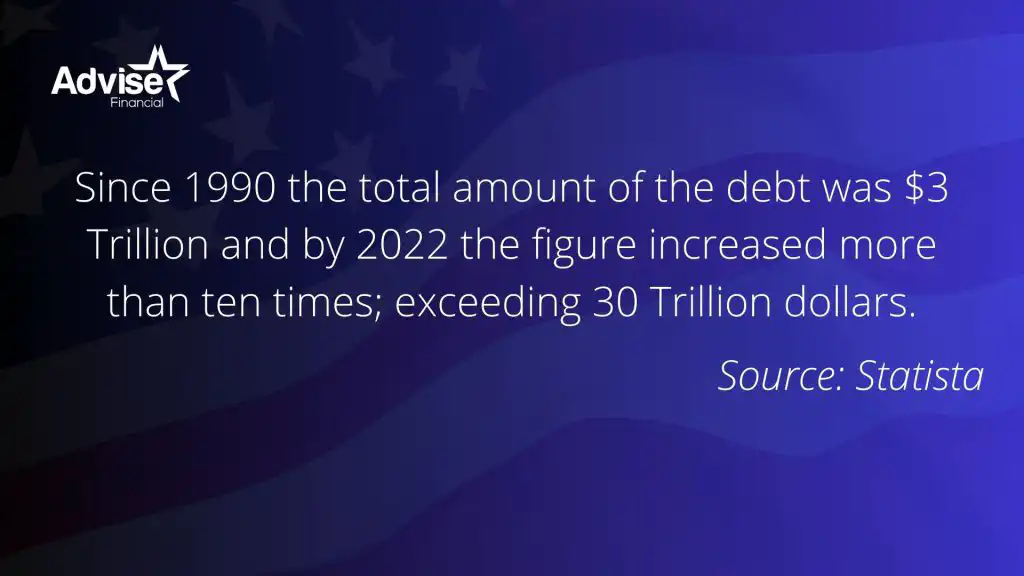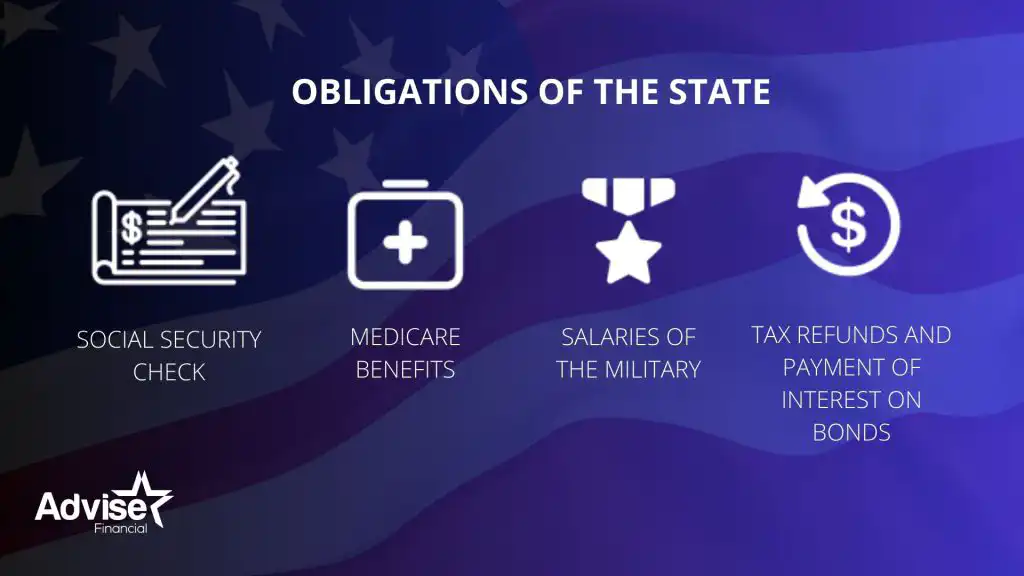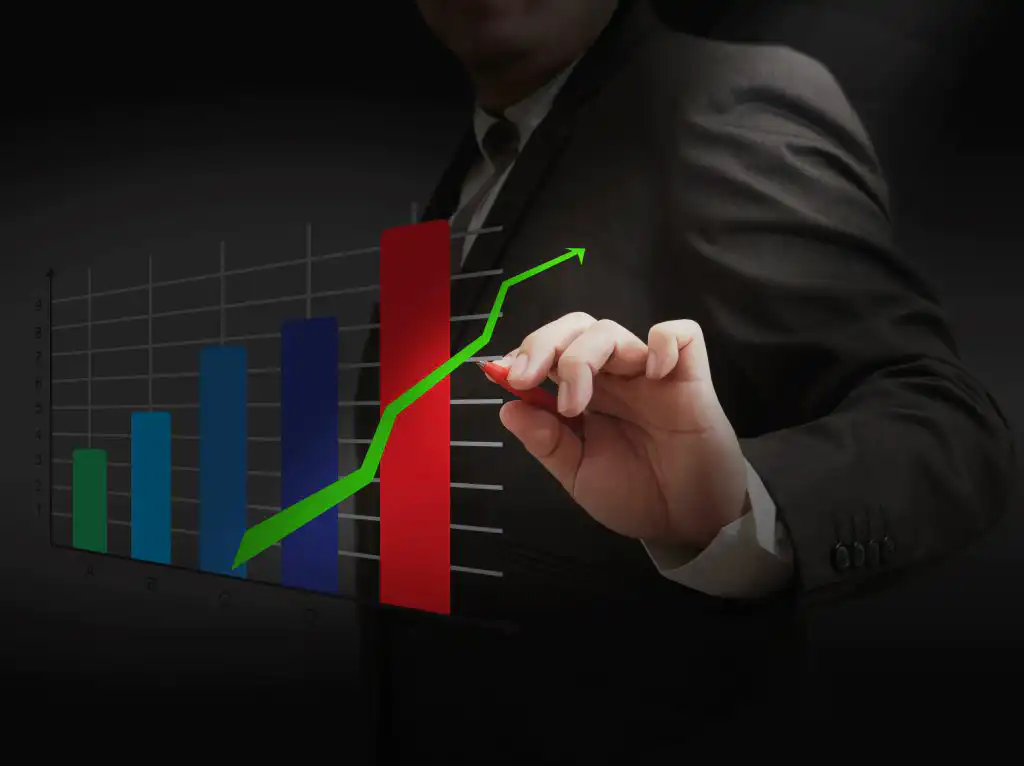
¿Qué es el techo de deuda y cómo puede afectar a mis inversiones?
12 de May de 2023
Trends in financial news UP2DATE News
18 de May de 2023.
First of all, we are going to describe what the debt ceiling is; according to Investopedia: “The debt ceiling is the maximum amount of money the United States can borrow by accumulating bonds,”; and it was created as a measure to establish fiscal discipline. It was originally established in the year 1917 when the United States was coming out of the First World War.
Before that, every time the government needed money, it continually asked Congress for it. This was impractical, which is why the debt ceiling was established.
It is not a secret that the government has been generating more debt because it spends more money than it obtains from its income, and it has been that way for many years. This debt is created through bonds that the United States backs.
.
What does history tell us about the debt ceiling?
.
In 1953 the first important request to increase the debt ceiling was requested by President Eisenhower. Since then, the debate began in public opinion and the concern of many to find a way to reduce spending and not continue indebting the country.
However, history shows us that no solution has been achieved. Since 1990 the total amount of the debt has been $3 Trillion, and by 2022 the figure has increased more than ten times, exceeding 30 Trillion dollars. (Source Statista)
.

.
American bonds are known worldwide as the safest investment there is; Academics and investors consider it a zero-risk investment. These types of instruments are the basis of the entire world financial system; If we see it as a pyramid, it is the base on which all investments are based.
Regarding this debt, there are many misinterpretations. It is said that by raising the debt ceiling, this money will be spent on new expenses, as ratified on the United States Department of the Treasury website. If the debt ceiling is raised, the Treasury does not have the authorization to make new expenses; Rather, it simply allows paying for expenses that Congress and the President have previously authorized.
Among these expenses are obligations such as the check paid to Social Security retirees, Medicare benefits, military salaries, and tax refunds; and another particularly important is the payment of interest on US sovereign debt bonds.
.

.
The debt and its similarity to personal finances
.
Without going into political opinions but rather just with a financial view and seen as a Financial Planner. This situation is reminiscent of families who know they are spending more than they are earning. They are financed with different types of debt: to pay for essential things such as food, housing, and education. But when the statement of the debts arrives, they start to think about whether they should pay or not.
Debt is a consequence of the imbalance between income and spending; Therefore, measures should always be sought to solve the underlying problem. Like everything in finance, take into account that everything implies important sacrifices.
Just like a family, the government raises taxes to generate more income or lowers expenses; but many programs or initiatives would be affected. The ideal would be to look for a combination of both until that does not happen; The debt ceiling episode will be something investors get used to that will continue to happen on an ongoing basis.
.

.
Has a similar situation happened before?
.
According to an article in the New York Times, in 1960, the US Congress had to increase the debt limit 78 times. Many analysts point out that it has become a very stressful and dangerous process, a kind of ritual.
Although it is true, the United States has never stopped paying its debt, which is technically called a Default. This has happened in many countries, such as Venezuela and Argentina, among many others.
What has happened is what is that called Government Shutdowns, which is when the government cannot meet its financial commitments; The most notable cases are the following:
- The government of President Bill Clinton, lasted about 21 days precisely because of a problem of reducing spending.
- 16 days under the government of President Barack Obama for a dispute over the implementation of the so-called Obamacare or Patient Protection and Affordable Care Act.
- And the most recent under the mandate of President Donald Trump. It lasted 35 days, being the longest in history, due to a dispute over the border wall with Mexico.
This shows us that stressful situations have already been experienced in the past, like those that occur every time the issue of the debt ceiling resurfaces in public opinion.
.
What would happen if the debt limit is not increased, and what should you do with your investments?
.
It is a situation that has never occurred, and nobody wants it to happen due to its implications at all levels.
But we do know that there is nothing more scary than the stock market. If it were to happen that an agreement was temporarily not reached, it would be information that would not be taken favorably with the stock market.
And we could talk about all the negative consequences that this could have on factors such as:
- Non-payment of part of the Social Security retiree’s check
- Not having to pay the payroll of public and military employees
- Eventually, the non-payment of interest on the debt and a drop in the credit rating of its bonds
- Not to mention the impact on the general rise in interest rates; and its consequence in the pocket of taxpayers or credit card debtors.
.

.
As can be seen, we can mention thousands of ghosts. The reality is that politically and globally, it is something that would not suit anyone. Hence, the probability of it occurring is very low, and if it does, it will not last long.
So, what should you do as an investor if a debt default occurs? First, remember that the money you have invested in the stock market is not for the short term, but for the long term, so short-term news should not govern your investment decisions. The second thing you should do is NOTHING! As long as your investments are well diversified and commensurate with your level of risk as an investor, wait until the storm passes.
.
Some recommendations about your investments
.
Don’t fall for those who say, “You should get out of all your investments and buy gold or crypto-assets” tales. You know very well that the dollar will continue to be the world’s safe haven currency for at least a few years or many more years. The United States has always lived up to its commitments, and don’t be swayed by sensational news that seeks to stress you out.
Ask yourself if those videos that say: “Now the world is going to change, it’s time to put all your money in gold or buy crypto-assets,”; they actually respond to marketing campaigns that seek to get you to buy these assets.
It is not a good idea to try to predict what may happen in the short term and exit the market to wait out the storm and then re-enter. Academics have studied this in every way, and history shows us that it is practically impossible to predict those perfect moments. Much less when we talk about the decisions that politicians can make, which makes it even more unpredictable.
In conclusion, it is time to see the bulls behind the fence and let this moment pass. If you have doubts, always consult your financial adviser; much better to find a financial planner. Instead of worrying about the debt ceiling, focus your financial energy on your retirement goals, the education of your children, or any medium-term goal.




3 Comments
I always was interested in this subject and stock still am, regards for posting.
Hey There. I found your blog using msn. This is a very well written article. I will be sure to bookmark it and return to read more of your useful info. Thanks for the post. I will certainly return.
You should take part in a contest for one of the best blogs on the web. I will recommend this site!